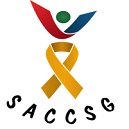Original Research
The efficacy of strategies used to minimise or prevent Cisplatin-induced ototoxicity in patients
Submitted: 12 September 2018 | Published: 22 January 2019
About the author(s)
Zenzo S. Chakara, Department of Health and Rehabilitation, Faculty of Health Sciences, University of Cape Town, South AfricaLebogang Ramma, Department of Health and Rehabilitation, Faculty of Health Sciences, University of Cape Town, South Africa
Abstract
Background: Hearing loss is a major side effect of cisplatin-based chemotherapy. With a large burden of cancer in developing countries, an evidence-based approach to prevention of cisplatin-induced hearing loss (ototoxicity) is pertinent.
Aim: This study aimed to evaluate the efficacy of treatment modifications currently being implemented to prevent or minimise ototoxicity during cisplatin-based chemotherapy.
Setting: A retrospective medical folder review design was employed. Purposive sampling was used to select medical folders of adult patients who were undergoing cisplatin-based chemotherapy at Groote Schuur Hospital between January 2011 and December 2016.
Method: Demographic, cisplatin chemotherapy treatment and audiometric data were extracted from patients’ records. The Common Terminology Criteria of Adverse Events version 4 (CTCAE v4) grading scale was used to determine ototoxicity and grade severity of hearing loss. Data were analysed using R, a software environment for statistical computing.
Results: Fifty-eight medical folders were included in the study (median age = 43 years; range: 18–75 years; 36 male, 22 female; average length of treatment: 13.45 weeks). Three treatment modifications were used: Dose reduction, switching drugs and continuing with the same drug. Common Terminology Criteria of Adverse Events version 4 grading scale revealed ototoxicity in 75 % of the patients who switched drugs, 50% of the patients with reduced dose and 56 % of the patients who were continued on the same drug. There was no statistically significant association between treatment modifications and incidence of ototoxicity.
Conclusion: Most patients experienced cisplatin-induced ototoxicity despite treatment modifications. There was no statistically significant association between any of the strategies implemented and incidence of hearing loss.
Keywords
Metrics
Total abstract views: 3377Total article views: 3499



